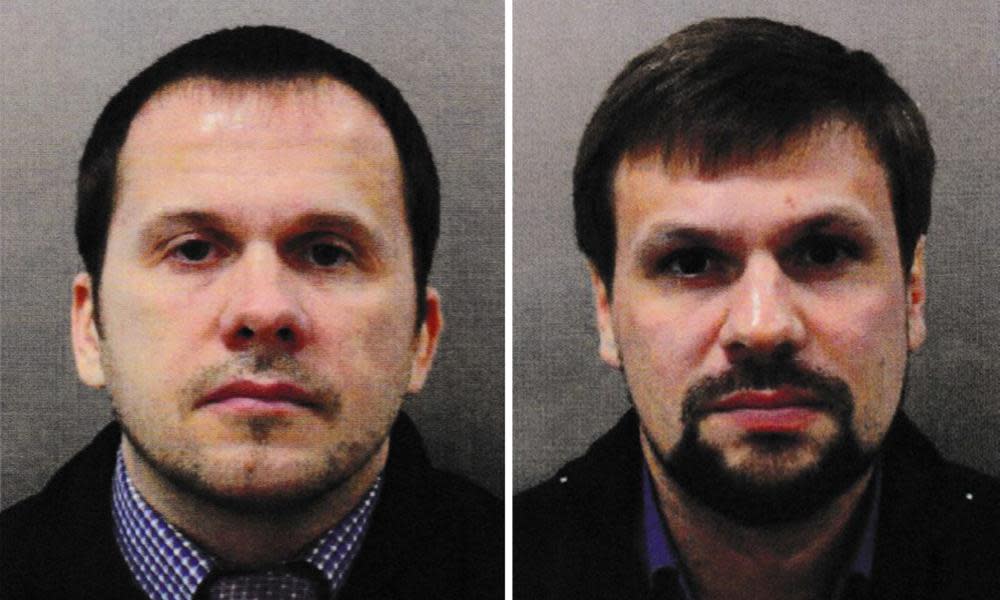Russian passport leak after Salisbury may reveal spy methods

A leak of Russian government data about the suspects in the Salisbury poisoning may provide a rare insight into how Russia’s military intelligence agency provides cover identities for its agents abroad.
Investigative journalists have unearthed what appears to be a series of passports with similar numbers belonging to suspected Russian intelligence officers, including the Salisbury suspects Ruslan Boshirov and Alexander Petrov.
The passport holders include a former Russian military attache who was expelled from Poland for espionage in 2014 and is alleged to be tied to an attempted coup in Montenegro.
Other men with similar passport numbers identified by the St Petersburg-based Fontanka news site listed their address as Khoroshevskoye Shosse 76 B, the Moscow headquarters of Russia’s Main Directorate, the military agency often referred to as the GRU.
Their travel records, as reported by Fontanka, could be tied to recent diplomatic incidents in Europe and, in at least one case, matched the details of a foreign trip taken by Vladimir Putin.
If the reporting is confirmed, it would be a major blunder by the intelligence agency, allowing any country to check passport data for Russians requesting visas or entering the country against a list of nearly 40 passport files of suspected GRU officers.
Putin has said publicly that Petrov and Boshirov are civilians and have no connection to the Russian government. But passport information first published by Bellingcat and the Russian investigative site the Insider showed that Petrov’s file was marked “top secret” and instructed officials to “give no information” and telephone a number belonging to the Russian military base on Khoroshevskoye Shosse in Moscow.
The passport information was retrieved from a Russian government database, the sites said. It was not clear how they gained access to that database, although some Russian passport data has been leaked online before.
Other elements of Petrov and Boshirov’s passport information also indicated they are not ordinary citizens. Both men had received their passports from an elite passport authority, 777001, which Bellingcat said was “exclusively used for state VIPs and intelligence officers”.
The two men had virtually identical passport numbers, separated by only three digits. Others in that series included Col Eduard Shishmakov, a Russian military officer who had been expelled from Poland for spying and was alleged to have wired money to Serbia via Western Union in preparation for an abortive coup in neighbouring Montenegro.
Fontanka managed to speak with one man named on the list of close to 40 passports, who said he was retired and denied being in military intelligence despite listing GRU headquarters as his address.
Other men on the list, such as Petrov and Boshirov, appeared “to have come from nowhere”, having no social media accounts or property history in Russia, but had nonetheless managed to travel, Fontanka said.

 Yahoo Movies
Yahoo Movies 
